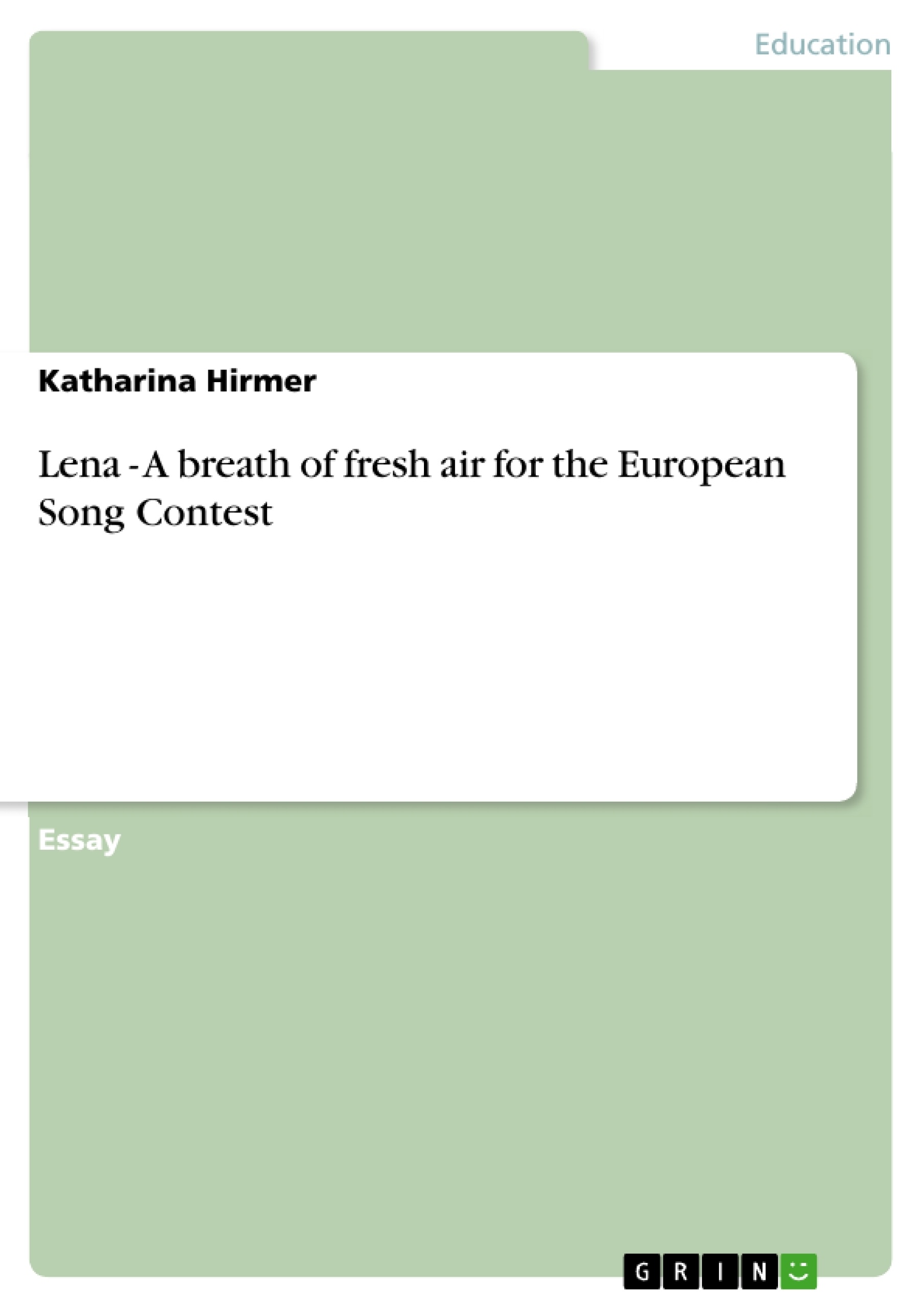“Love, oh love...” has already been in everyone’s head in Germany for weeks, now it’s also in the head of all the 125 million viewers of the Eurovision Song Contest (ESC) 2010 in Oslo. Even children of the age of eight to ten can sing the chorus of Lena Meyer-Landrut’s song “Satellite” by heart. For 28 years, nobody has won the Grand Prix Eurovision for Germany, but this time Lena did it. Germany and a big part of Europe have gone “Lena-crazy”.
The German candidate won the European championship in singing – how Stefan Raab called it – with the second largest margin in the history of the ESC, even though she was not even one of the favorites right from the start. She convinced so many people with her voice and her performance that she got 246 out of 480 points. From nine European countries she even got the perfect score of 12 points. That’s really a huge progress for Germany in this competition, since the last 27 years have not been crowned by success of the German contestants. You only have to remember the No Angels with their 23rd place and the more than embarrassing striptease of Dita van Teese in 2009. What a shame!
Even if Lena’s weird Australian English accent leaves much to be desired, she obviously persuaded many people to vote for her. But what exactly lead to the fact that Lena orbits so many European TV viewers ‘like a satellite’ so that they called or text-messaged for her, the dainty German high-school graduate?
Lena is just a cutie without too much of anything. She is handsome and pretty, but also a little bit boyish. In her own sweet and crazy way, she has been taken into her fan’s hearts immediately. And her fans are not just young girls and teenagers – as it is usual, when somebody moves up the pop music ladder as fast as she did.
Inhaltsverzeichnis (Table of Contents)
- A Breath of Fresh Air for the European Song Contest
- Lena - A Little Cutie
- Simple Show - Great Success
- Raab's Success Story
- A Song from Georgia
- Jealousy or Criticism?
- English – the Universal Language?
- A Star for Europe?
Zielsetzung und Themenschwerpunkte (Objectives and Key Themes)
This text analyzes the factors contributing to Lena Meyer-Landrut's victory at the 2010 Eurovision Song Contest. It examines the elements that made her successful, including her personality, the simplicity of her performance, and the role of Stefan Raab in her career. The text also explores the significance of her song being in English, as opposed to German, and discusses the potential challenges and opportunities for her future career.
- Lena Meyer-Landrut's victory in the 2010 Eurovision Song Contest
- Factors contributing to her success, including personality, performance, and the role of Stefan Raab
- The significance of the song's language (English) and its impact on the contest
- The potential challenges and opportunities for Lena's future career
- The role of the Eurovision Song Contest in promoting German music and culture
Zusammenfassung der Kapitel (Chapter Summaries)
This text begins by describing Lena Meyer-Landrut's impressive victory in the Eurovision Song Contest and the impact it had on Germany. It then delves into Lena's personality, emphasizing her natural charm and appeal to a broad audience.
The following section explores the simplicity of her performance and the lack of elaborate staging, highlighting how it contributed to her success. The text then examines the role of Stefan Raab, a prominent German television personality, in Lena's rise to stardom. He is credited with identifying and developing her talent through his "Our Star for Oslo" casting show.
The text proceeds to discuss the origins of Lena's winning song, "Satellite," tracing it back to its American composer, Julie Frost. It also addresses criticism from Eastern Europe regarding the song's originality, suggesting that it may stem from envy.
The final section delves into the importance of the song's language, English, in contributing to its success. It argues that English is a universal language, accessible to a wider audience, and that German songs often lack the same international appeal. The text concludes by reflecting on Lena's future prospects as a potential European star, acknowledging the possibility of both continued success and potential career setbacks.
Schlüsselwörter (Keywords)
The text focuses on the factors contributing to Lena Meyer-Landrut's success at the 2010 Eurovision Song Contest, including her personality, performance, the role of Stefan Raab, the significance of the song being in English, and the challenges and opportunities for her future career. Key concepts include Eurovision Song Contest, German music, international appeal, Stefan Raab, "Our Star for Oslo," Lena Meyer-Landrut, and the role of language in music.
Frequently Asked Questions
Why was Lena Meyer-Landrut's victory at the ESC 2010 significant for Germany?
It was Germany's first victory in 28 years. Lena won with the second largest margin in the history of the contest at that time, ending a long period of unsuccessful German entries.
What factors contributed to Lena's success?
Key factors included her natural and boyish charm, her unique voice, and the simplicity of her performance, which lacked elaborate staging but focused on her personality.
Who was responsible for discovering and developing Lena's talent?
Stefan Raab played a major role. He identified her talent through his "Our Star for Oslo" casting show and was instrumental in her career development leading up to the Eurovision Song Contest.
Why did Lena sing her winning song "Satellite" in English?
English is considered a universal language in the music industry, making the song accessible to a much wider international audience compared to a song in German.
What were the origins of the song "Satellite"?
The song was composed by American songwriter Julie Frost. Despite some criticism regarding its originality, it became a massive hit across Europe.
- Quote paper
- Katharina Hirmer (Author), 2010, Lena - A breath of fresh air for the European Song Contest, Munich, GRIN Verlag, https://www.hausarbeiten.de/document/196037


